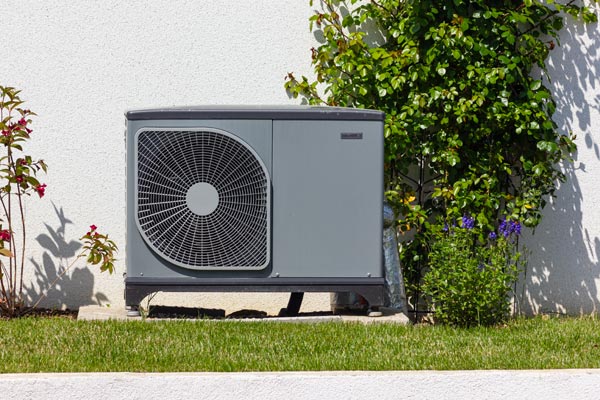5 Reasons to Consider a Heat Pump For Your Home

Heat Pump vs. Furnace: Which Heating Option is Best for Your Home
It happens. Age catches up with all of us.
The same can also be said of your residential heating, ventilation, and air conditioning (HVAC) system. They exist in the background of our daily lives, barely noticeable beyond a quiet whisper of air movement during heating or cooling cycles. However, HVAC systems have an average lifespan of 15 to 20 years and will eventually need to be replaced.
If you are facing the replacement of your HVAC system, take some time to investigate your options. The inclination might be to replace what you have, either a natural gas or electric furnace, but you have an option that might save money year-round while keeping your family comfortable. That option is a Trane heat pump. Here are five good reasons to take note of a heat pump option.
- Proven Technology. A heat pump uses the components already in use in your home—the same components used for air conditioning. Most people think that an air conditioner cools the air in a home, when in fact the air conditioner is moving heat from the inside to the outside of a home. Less heat equals a cooler space, with less humidity as a bonus. A heat pump reverses the process, moving heat from outdoor air to the inside. More heat equals a warmer space, right? The outdoor air might feel cold to you, but these mechanisms can pull sufficient heat from the air to keep a family comfortable until the temperature drops below 32 degrees. The technology is quite impressive.
- Proven Efficiency. Moving heat around is much more energy efficient than creating heat and moving it around. Natural gas furnaces burn fuel, capture most of the energy, and move it into the home: they capture between 90 and 98% of the available energy from gas. Electric furnaces use electricity to create heat, capture the heat, and move it into the home. Heat pumps capture outdoor heat and move it into the home; the energy used to create the heat comes from the sun. Heat pumps are between 3 and 5 times more efficient than furnaces that create energy and that results in a lower heating bill.
- Location. Location. Location. Yes, this is the realtor’s motto, but it also applies when considering a heat pump. The average daytime temperature in the area is in the 60s and the average evening temperature is in the mid-40s. There is plenty of heat outdoors, so why not move it indoors to keep the home comfortable? pumps are paired with an alternative heat source for a few occasions when the temperature in the area drops below 32 degrees. This ensures that your home is comfortable regardless of the outdoor temperature.
- The Price is Right. Replacing a major building system is a major purchase but it shouldn’t break the budget. The cost of electric and heat pump systems is generally lower than natural gas systems. The installation cost of electric and heat pump systems might also be lower, but that cost is unique for each home. Maintenance and repair costs are pretty even, with a slight benefit for electric systems. However, electric and heat pump systems have a longevity advantage; natural gas systems age a little quicker than electric systems. From start to finish, heat pump systems have a moderate to slight price advantage beyond the energy-efficiency benefit.
- Better Humidity Regulation. Natural gas furnace systems tend to dry the air which results in seasonal static electricity during winter months. The relative humidity in a home should range between 40 and 60% year-round. Heat pumps do not affect indoor moisture levels, a definite comfort and health benefit.
Heat pump systems require significant air movement to function, so changing the air filter regularly is essential. An annual inspection and cleaning by a Trane factory-trained technician will keep your Trane heat pump system performing year-round and for years to come.